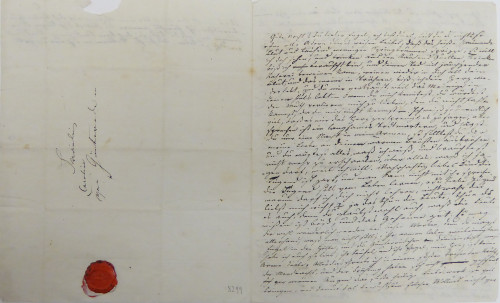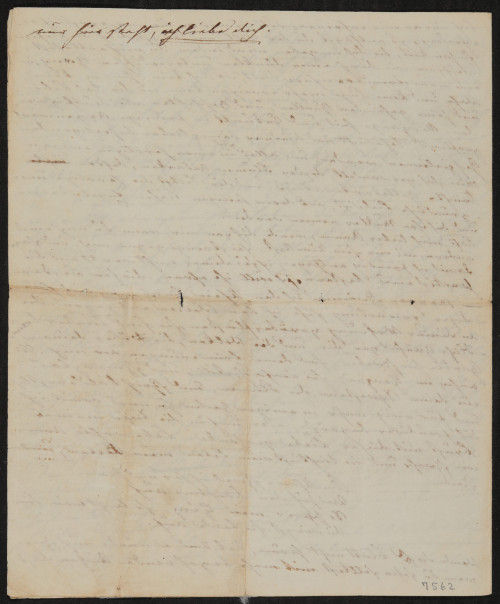On 4 April 1802, Clemens Brentano made the acquaintance of Karoline von Günderrode in the home of his sister Bettine. He was twenty-three at the time and had published his novel Godwi the previous year. Günderrode had already read it. She had been living in the Cronstetten-Stift, a religious foundation for destitute aristocratic ladies near Rossmarkt Square in Frankfurt. Her parents’ eldest daughter, she had been sent there by her mother, who could no longer afford to support her. As it was an environment characterized by stern social control, she initially kept her writing activities a secret. There weren’t many people she could be open to.
Karoline von Günderrode was an unusual woman for her time. Because she had, by her own account, “desires just like a man”, she was intrigued by the Romantic idea of a free, equal relationship between the sexes. Shortly after their first meeting, Brentano had a letter conveyed to her that overstepped all the bounds of propriety. This erotic, vampire-like assault covers the densely spaced pages, but the third page is almost completely blank. The postscript there begins with the words: “What kind of effect does this letter have on you, dear little Günterrödkins?” The letter was evidently not an intoxicated outbreak of passion at all, but rather a literary-psychological experiment with which Brentano sought to challenge the recipient. Günderrode realized she was being put to the test. On 19 May 1802, she began her reply with the words: “I felt quite strange when I read your letter, but in the process I was thinking more than I was feeling, for I still felt as if this letter had not been written for me at all.” She coolly ignored the indiscretions and analyzed the writer of the letter instead: “It often seems to me that you have many souls.”

